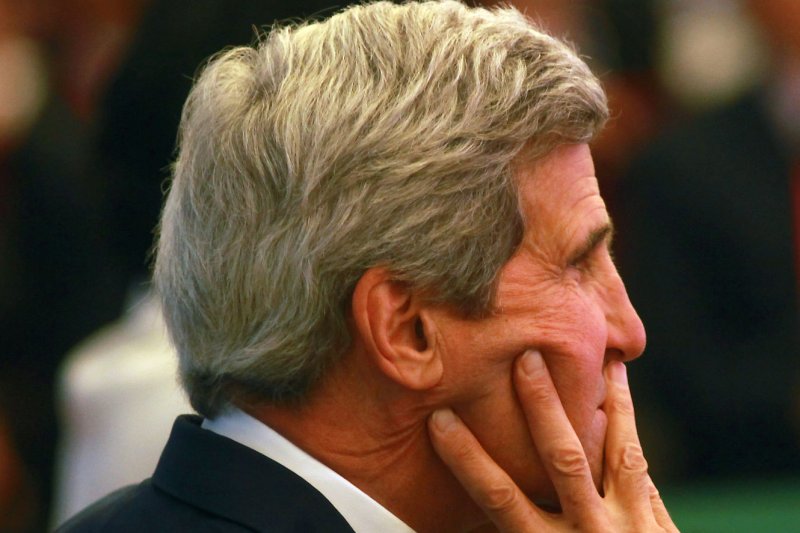VIENNA, July 15 (UPI) -- U.S. Secretary of State John Kerry acknowledged Tuesday after days of intense meetings in Vienna to negotiate a final Iranian nuclear agreement that there remain "very real gaps."
The ultimate aim, U.S. officials have repeatedly said, is to achieve an agreement that permits Iran to continue to develop an exclusively peaceful nuclear program with commitments from Iran that it will not seek to develop a nuclear weapon. "These goals," Kerry reiterated Tuesday, "are not incompatible. In fact, they are realistic."















